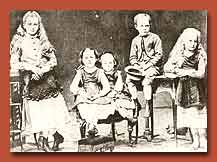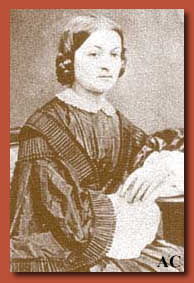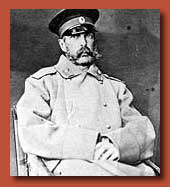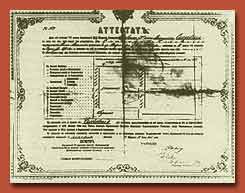
http://www.aip.org/history/curie/polgirl1.htm
The five Sklodowski children. From left to right: Zosia died of typhus; Hela became an educator; Maria, twice a Nobel laureate; and Józef and Bronya, physicians. (photo ACJC)
Marie Curie was born as Maria Sklodowska. Manya, as she was affectionately called, learned to be a Polish patriot from her parents, Bronislawa and Vladislav Sklodowski. During the time of Maria's birth in Warsaw on November 7, 1867, Poland had not been an independent country for most of a century. It had been divided up among Austria, Prussia, and czarist Russia.
Warsaw was controlled by the czar, who hoped to be rid of Polish nationalism by keeping the people ignorant of their culture and language. But Polish patriots were determined to regain control of their nation. Maria's parents were educators and they did their best to overcome the restrictions that were placed on them by their Russian supervisors.

http://www.aip.org/history/curie/polgirl1.htm
Marie was ten years old when her mother Madame Sklodowska (shown above) died in May 1878. As an adult Marie remembered it as: "The first great sorrow of my life", which "threw me into a profound." http://www.aip.org/history/curie/polgirl1.htm
Hundreds of thousands of Polish intellectuals and professionals went into exile to European cities like Paris. Marie's father made a decision not to participate in armed revolt, but to employ, passive resistance. "He believed, along with other Polish intellectuals, that education was a powerful weapon in creating a social revolution."http://www.hypatiamaze.org/marie/curie_bio.html
This philosophy was called "Polish positivism." Positivists emphasized science education as one way of changing the world for the better.
Even though the schools were closely watched by the Russian authorities, many Polish teachers found ways to continue teaching the Polish language and Polish history. This could be risky. Marie's father, for example, was demoted as principal of his school and a Russian was brought in to replace him.
Marie's father had to take a series of progressively lower
academic posts, the family's economic situation deteriorated.
To help make ends meet they had to take in student boarders. Maria was
only eight when her oldest sister caught typhus from a boarder and died.
That death was followed less than three years later by the death of Madame
Sklodowska, who lost a five-year battle with tuberculosis at the age of
42.
“I easily learned mathematics and physics, as far as these sciences were taken in consideration in the school. I found in this ready help from my father, who loved science....Unhappily, he had no laboratory and could not perform experiments.”
-Marie Curie
"You
cannot hope to build a better world without improving the individuals.
To that end, each of us must work for our own improvement and, at the
same
time, share a general responsibility for all humanity, our particular
duty being
to aid those to whom we think we can be most useful."
—Marie Curie
 http://www.aip.org/history/curie/polgirl1.htm
http://www.aip.org/history/curie/polgirl1.htm
